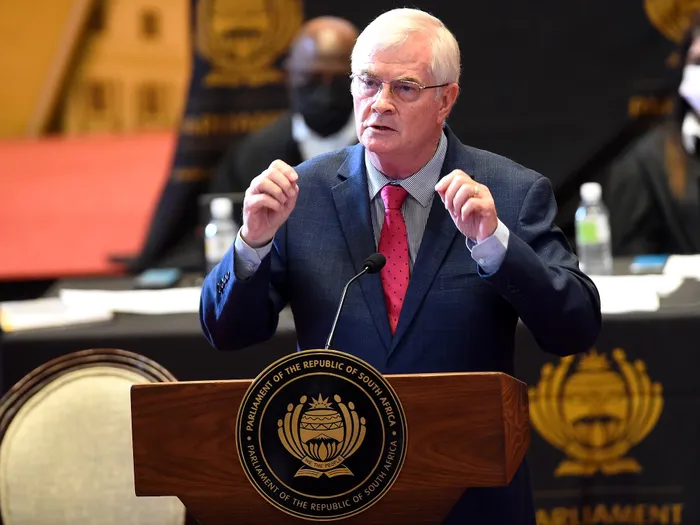Here’s how Correctional Services is cracking down on prison cellphone smuggling

Minister Pieter Groenewald says intensified searches, staff vetting and stricter controls will curb contraband smuggling in prisons, as Parliament warns of rising cellphone seizures and ongoing security breaches across correctional facilities.
Image: Independent Media Archives
Minister of Correctional Services Pieter Groenewald says his department has tightened security measures to curb the flow of contraband cellphones into prisons.
This comes in response to a parliamentary question by Member of Parliament Janho Engelbrecht, who asked what steps were being taken to stop inmates from accessing illicit devices and how officials who collude in smuggling would be held accountable.
Groenewald said the department was applying a range of daily security measures aimed at preventing inmates from obtaining banned items.
He said the Department “has implemented various measures on daily basis that strengthens security through conducting intensive searches on inmates, staff and visitors including contractors to prevent smuggling of contrabands such as cell phones from entering Correctional Facilities using metal detectors, body scanners, X-ray machines, CCTVs, sniffing dogs and pat-downs searches etc.”
He explained that internal controls had been strengthened through surprise cell searches and the gathering of intelligence information to encourage both inmates and staff to report smuggling activities.
His response comes amid growing alarm in Parliament over security breaches in prisons. Earlier this month, the Portfolio Committee on Correctional Services raised concern after oversight visits revealed a spike in confiscated contraband. At St Albans Correctional Centre, 786 cellphones were seized between April and September, while seven officials were caught with contraband.
Committee chairperson Kgomotso Ramolobeng said the committee had urged the department to open criminal cases against officials “compromising security in correctional facilities,” and pushed for increased investment in technology to detect smuggling.
The issue of cellphone smuggling has also been highlighted by the case of high-risk inmate Vusimuzi “Cat” Matlala.
In a separate parliamentary reply, Groenewald said an investigation into a cellphone found in Matlala’s possession at Kgosi Mampuru Correctional Centre “could not point to anyone responsible except the inmate who had the contraband during the search.”
Matlala had claimed he received the phone from another offender who has since been released on bail, but the department’s inquiry found no corroborating evidence.
National commissioner Makgothi Samuel Thobakgale confirmed that Matlala was caught during a surprise search and was subsequently moved to the C-Max section.
Groenewald said that “the Centre Management has conducted a risk and security assessment of the inmate. The inmate has been reclassified,” and that measures had been strengthened to prevent similar breaches, including tighter security patrols, stricter enforcement of procedures and limits on what items officials and inmates may carry.
At the same time, concerns over safety in facilities escalated after two inmates were killed during a stabbing incident at Pollsmoor Prison. Officials were attacked before force was used to restore order, with several people hospitalised.
Thobakgale condemned the violence as “unwarranted and deeply saddening, especially when lives are lost.”
He added that “Suitability Checks and Vetting on officials is conducted on rotation and providing regular training regarding contraband risks, smuggling methods and techniques used by inmates to access contrabands.”
Responding to concerns about staff involvement, Groenewald said the department had intensified security awareness efforts and strengthened committees responsible for addressing security breaches, including smuggling.
He noted that officials were barred from entering facilities with bags or packets, with only personal items and meals allowed, and that female officials were required to use clear plastic bags.
Groenewald said the department “ensures accountability of officials who collude with inmates in the smuggling of such items by implementing consequence management as per Correctional Services Act 111 of 1998, Section 119.”
He added that disciplinary measures were also applied to inmates implicated in smuggling, noting that the Correctional Services Act provides for disciplinary action under Section 23 and that “Section 120(c), any offender who contravenes this section is liable on conviction.”
hope.ntanzi@iol.co.za
IOL Politics